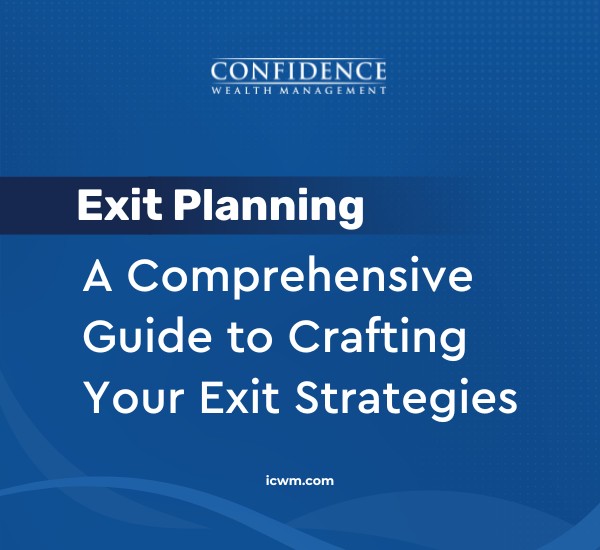Successful entrepreneurs dedicate most of their lives to developing high-value companies. Ultimately, most of them end up selling these businesses to others.
Sometimes, there’s simply no one available to continue their business, or health problems can also be a reason for selling. Usually, though, they’re presented with an opportunity that’s too tempting to pass up.
When a business is sold, owners have the potential to become quite wealthy. They may even join the ranks of the super-rich (those with at least $500 million in net worth). With proper preparation and marketing, an operational company can fetch a good price and the owner can walk away with a huge payday.
In some cases, however, the opposite is also true. Business owners that make significant mistakes when selling risk losing out on money they could have pocketed. They may even miss out on the amount of money they truly deserve, given the time and effort they’ve invested over the years.
For any entrepreneur or business owner, we know which outcome we’re going for, especially when planning to cash out. With that said, here are the four mistakes that research has shown can hinder a business sale, together with advice on how they can be avoided.
Mistake 1: Ineffective Negotiation With Providers
Most business owners know that the amount of money a brand is worth is highly influenced by the negotiations that take place between the buyer and seller. Yet, the negotiation aspect isn’t the only important part of selling a company. Only a small amount of successful entrepreneurs negotiate with their own experts concerning the transaction.
For instance, most company owners rely on investment bankers to help find potential buyers and streamline their sale. However, only a small margin of business owners think about negotiating their contracts and agreements with these investment bankers.
Some of the potential mistakes in such agreements are:
- A relatively long timeframe concerning exclusive rights. At times, investment banks may ask for as long as two years, when the standard is usually just a waiting time of six months or so.
- Paying a similar amount for the investment bank to raise debt, which is easier to do, rather than increasing equity, which is more difficult.
- A lack of mutual indemnifications. At present, it’s commonly only the investment banks that require companies to indemnify them with regards to misinformation they provide to potential buyers. However, companies should also require investment banks to indemnify them for the same.
So, how big of a problem are these? It appears that almost 80% of corporate attorneys mention that poor negotiations with providers are quite common nowadays. Meanwhile, only a mere 6% state that poor negotiations are not typical in their field.
Mistake 2: Being Unable To Properly Prepare Crucial Personnel for the Sale
Often, business success is highly dependent on its key members, particularly with regards to the top salespeople and senior executives. Ensuring that these individuals are incentivized to remain with the business and the new owners are vital for the sale and the price.
There are several methods to encourage these key personnel to stay and help in facilitating the ownership transition:
The most commonly used approach is to provide them with employment contracts that come with bonuses. Another tactic is to provide “exit event stock options” that can only be exercised once the company has been sold or goes public.
A similar aspect to consider is non-solicitation and non-compete agreements. It’s clever to set up severance plans for essential personnel so that they don’t compete or solicit customers throughout the period of severance payments. Failure to prepare these essential individuals is one of the most common problems mentioned by 72% of surveyed lawyers. Meanwhile, only a meager 12% stated that it was an uncommon concern for them.
Mistake 3: Failure To Prepare the Company for Sale Financially
Business owners who ensure that the financial aspect of their company is as appealing as possible to potential buyers can result in a significantly better sales price. It’s not that different from renovating old or broken parts of a home before placing it on the market for sale.
Despite this, it’s still quite common that entrepreneurs fail at initially doing as good a job as they should when preparing a company financially.
A fifth of corporate lawyers who were surveyed mentioned that this is a big concern, while half of them reported it to be common. In stark contrast, only 15% of lawyers said it was an occasional problem, and just 10% reported that it was uncommon.
Here are some ways that entrepreneurs can prepare the finances of their company prior to putting them up for sale:
- Improve the balance sheet: A company can improve how it manages its financials by being more effective in cash management and accounts receivables while getting rid of non-performing assets.
- Address the cost of funds: Having the right loan covenants, for instance, could make a huge difference when selling a business. The overall aim is to maximize the working capital arrangements.
- A lack of audited financial statements: Failing to audit financial statements increases the chances that entrepreneurs will experience liabilities once the sale closes.
Mistake 4: Failing To Get Rid of Potential Deal-Breakers
There are several possible deal-breakers that can derail the sale of a company. For instance, businesses with tax issues will often have hesitant buyers, or those asking to push down the price. One example is if the business owner is compensating their family members much more for a service at a significantly higher rate than they would be willing to pay a third party service for the same work.
Another potential deal-breaker is when a business has material violations of state, local, or federal environmental regulations. This requires potential buyers to fix the concerns themselves, with the cost often difficult to justify.
What Does This Mean for Business Owners?
Business owners planning to sell their companies only have one opportunity to make things right, with no do-overs allowed. That’s why it’s vital to avoid these four mistakes, as they can lower company value in the eyes of potential buyers, thus making it difficult to sell.
It’s only sensible to assemble a group of professionals who can help in navigating this route. The earlier business owners can do so, the better.
If you have questions or concerns regarding selling a business, call us at (310) 820-4411 or request a quick 15-minute phone call.










